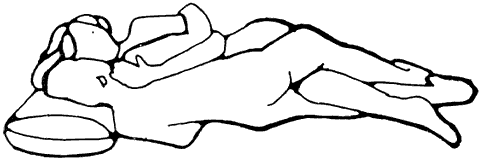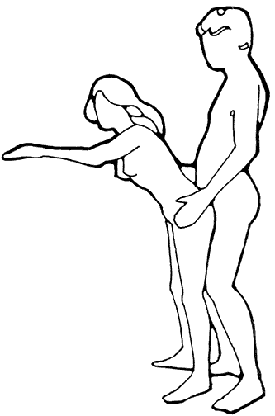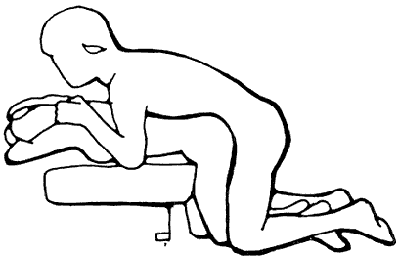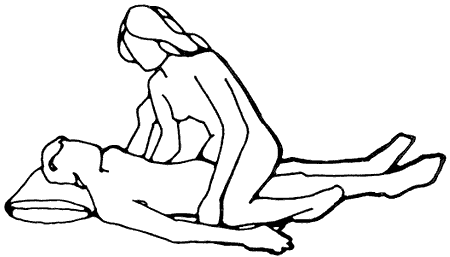
Edited By Frederick A. Matsen III, M.D., Professor, UW Orthopaedics & Sports Medicine
Last updated: October 14, 2011
For the most up to date information on shoulder arthritis, follow our blog:
http://shoulderarthritis.blogspot.com/
Contact
If you have questions regarding the surgical treatment of arthritis, feel free to email Frederick A. Matsen III M.D. at matsen@uw.edu.
Overview
Does arthritis affect sex?
People with arthritis may encounter special challenges in attaining sexual enjoyment.
While arthritis usually doesn't directly affect the sexual parts of the body, it can present obstacles for you or your partner such as:
- physical problems due to arthritis--for example fatigue, pain, stiffness, vaginal dryness,
- side effects from medications. For example, fatigue, impotence, risk for infections, weight gain or bloating
- emotional reactions--for example, negative self-image, depression or other emotional problems that may or may not be due to arthritis
- relationship problems--for example, conflicts with your partner related to the stresses of your illness or your partner's fear of causing you physical pain
Problems such as these may decrease your interest in sex and may change how you think and feel about yourself. Your body may physically be able to respond sexually, but the way you or your partner feels or the way you see yourselves may limit your interest in sex.
Making love is not limited to sexual intercourse however. There are many other pleasurable ways to enjoy sexual relations and express love to your partner
A healthy self-image
Changes in your joints and other areas due to arthritis may change the way you look and the way you move. Body changes do not change who you are as a person; however, they can interfere with an otherwise healthy self-image by causing you to feel less attractive, less youthful or less confident sexually or socially. It is possible to work through these negative feelings to accept body changes and to maintain your personal interest in life. Here are some ways to do this.
Accept
Accepting change can take time. You may have feelings of resentment, anger, grief, blame or depression about your or your partner's arthritis. These feelings are natural and you should not criticize yourself for thinking them. Accepting such feelings is the first step that will enable you to work through them. You will then find you can replace negative feelings with a realistic acceptance of how your body has changed.
Communicate
If you have arthritis, ask your partner how he or she feels about the changes in your body. If your partner is concerned that sexual activity may be painful for you or has negative feelings about the changes in your body, he or she may be anxious about being sexual with you. You may both begin to avoid sex altogether and this could create tension between you. Talking with one another can help prevent this.
If you are not very interested in sex or are less able to have sex physically, share these feelings with your partner. This helps prevent misunderstandings and enables you both to stay close with one another at times when you may need it most.
You can continue to express affection while seeking ways to please your partner and yourself physically. By talking to one another, you can work together to discover satisfying options for both of you. If it's difficult to begin talking about these matters, you might find help from your doctor, minister, nurse, social worker or therapist.
Take care of yourself
Careful grooming can help you improve your self-image. Selecting the right cut or design in clothes and choosing becoming colors will help you look and feel better. Make it one of your daily goals to look your best. It will boost your morale and have a positive effect on those around you.
Don't accept stereotypes
If you are disabled by arthritis, some people may mistakenly assume you're not interested in sex. You certainly don't have to accept this view of yourself. People with severe disabilities can and do have satisfying sexual relationships. Satisfying sex can help you accept changes in your body, enhance your confidence in your own sexuality and help you feel better physically.
Tips for communication
As you read this information, you'll have new information and ideas to discuss with your partner about making love. It can be difficult to begin talking. Some people who joke easily about sex in another setting feel awkward talking about their own sex life together. Talking will become easier after the first time you break the ice and with each conversation that follows. Here are some other ways to increase communication with your partner.
Ask your partner to read this information
Then find a time and private place free from distractions to talk about the sexual needs, desires and ideas you both have.
Try something new
This could provide fresh excitement, comfort and pleasurable intimacy. Encourage new ideas in one another without pressing or rushing. For example, you might consider creating a novel romantic setting, changing the place where you usually make love or discovering new and pleasurable ways to touch and hold one another. Consider this an adventure well worth your time and patience.
Let your partner know what feels good
You know what you find comfortable, exciting or painful. Your partner knows what you feel only when you tell him or her. Words are likely to be clearer than smiles or sighs.
Take turns giving each other a gentle massage. This is a good way to learn to talk about body feelings. When your partner's hand gets near a painful area of your body, simply redirect it toward a place where you enjoy the touch most. Continue to share your feelings through words.
Have clear pre-set signals to let your partner know if you experience severe pain. A signal can enable you to continue your love-making on a positive level rather than bringing it to an abrupt end because of mutual anxiety.
Open communication about your feelings will end the guesswork between you and your partner. The reassurance support and new understanding which can come from talking could open the door to a joy you have never known. Always let your partner know when something really feels good--this is the most helpful guide you can offer.
Planning can help
Pay no attention to the myth that good sex has to be spontaneous and unplanned.
You will find that planning is a major help in enjoying sex when pain and fatigue have been constant companions. Here are some general suggestions to think of in your planning:
- Plan for sex at a time of day when you generally feel best.
- Time your dose of pain-relief medication so that its effect will occur during sexual relations.
- Pace your activities during the day to help avoid extreme fatigue.
- Practice prescribed range-of-motion exercises to relax your joints.
- Use a vibrator or lubricant before sex to help produce arousal and to facilitate insertion.
- Take a warm bath or shower before sex to relax and soothe your joints and muscles. Showering ahead of time may also help women who report an increased body odor during a flare-up of the disease.
- Use your imagination: shower or bathe with your partner. Make it a part of the romance. Gently apply lotion to one another afterwards to heighten sexual arousal. You can enjoy pleasant sensations, warmth and affection even if all the pain is not relieved. Gentle touching may feel especially good to one whose body is often a source of pain.
Finding new positions
Finding new positions for intercourse can put less strain on painful joints and in turn improve your sex life.
The usual position with one partner on his or her back and the other on top can be very uncomfortable, especially if the one (or both) of the partners has arthritis in the hip, knee, leg or arm. If you have had joint replacement surgery, talk to your doctor about when to resume sexual activity and which positions will be most comfortable for you. Here are some ways to find a comfortable position:
Have your partner provide most of the body action if movement causes you pain. You may prefer a position which allows you to move away if you suddenly have joint pain.
Think about what you do to make yourself more comfortable when you are lying in bed. Perhaps these changes of position can be adapted to your lovemaking for greater comfort and increased pleasure for you and your partner.
Use the following descriptions for new ideas about different positions. Since people differ in height, weight, strength and degree of arthritis, the exact arrangement of the bodies suggested will not accommodate everyone's needs. However, they are good starting points from which you may begin to find new freedom. As you experiment with this freedom, tell one another how comfortable and satisfied you are with a new position. The goal is to work together for your mutual pleasure and comfort.
Figure 1: Both partners lying on side. The man is behind. The woman can have a pillow between her knees. This position is good when the woman has hip problems.
Figure 2: The woman lies on her back, knees together with pillow under hips and thighs. The man supports his own body weight on his hands and knees. This can be used when the woman has hip or knee problems or is unable to move her legs apart.
Figure 3: Side position with partners facing each other. Can be used if man has back problems.
Figure 4: The woman lies on her back with knees flexed. This can be used when the woman has severe contractures.
Figure 5: Both partners stand. The man is behind. The woman uses furniture at a comfortable height for support and balance.
Figure 6: The woman kneels her upper body supported by furniture. Her knees can be supported by a pillow. May be helpful when the woman has hip problems. Not good if shoulders are involved.
Figure 7: The man lies on his back. He may use pillows for support. The woman can support her own body weight on her elbows and/or knees. This can be used when the man has hip or knee problems.
Alternate ways to enjoy sex
There are many satisfying ways other than intercourse to make love and to have your body respond to sexual stimulation. Some of these may be familiar to you; others less so. All are normal natural expressions of human sexuality. These alternate sexual activities can be a welcome solution when you're having arthritis pain.
Sensation pleasure and satisfaction do not depend on penetration of the penis deep into the vagina. For example, the end of the penis is its most sensitive part. The clitoris and opening to the vagina are far more sensitive than the interior of the vagina. Men often feel that an erection and penetration of the woman's vagina are necessary to please his partner. But this is not necessarily so. Many women find greater satisfaction through genital stimulation either manually or orally.
Women may have a problem with decreased lubrication causing the vagina to be dry which makes intercourse uncomfortable. The decreased lubrication may be caused by certain medications for some diseases like lupus, scleroderma and Sjogren's syndrome, or can be a natural change due to aging. Using a vaginal lubricant will make entry of the penis easier in any position. A word of caution: petroleum jelly products and other oily substances are not recommended because they may harbor germs which could cause infection. It's best to use a germ-free lubricant such as K-Y Jelly or Steri-lube. These are available without a prescription.
At times when you are not able to have sexual intercourse in the usual way, you can still enjoy your sexuality. Other ways to express affection can excite the body and bring sexual enjoyment.
Manual sex
If there are times when sexual intercourse is not possible because of pain, you and your partner can still enjoy lovemaking. Caressing with your hands manual sex can be a satisfying alternative to sexual intercourse. Fondling, stroking the genitals, breasts and all areas of sensitivity can excite you both to orgasm with fulfillment as complete as intercourse. You may enjoy your orgasm together or take turns. If your hands are swollen and sore, you can still embrace and gently caress your loved one as he or she stimulates his or her own genitals to climax. Your warmth, caring and reassuring embrace convey fully the love you desire to give.
If your hands are affected, a vibrator provides another alternative for sexual pleasure. It may be the kind of vibrator found in small appliance departments which is used for light massage of the neck or face. Another type is the tube-shaped vibrator which is lighter and easier to handle. These are available at some stores or through mail order.
Moving the vibrator gently over the sensitive areas of your partner's body, especially against the underside of the penis or clitoris will quickly bring about sexual pleasure. A word of caution however--it is possible that the vibrator may irritate tender genitals if used frequently or too long. You may want to lubricate with a sterile jelly or use a clean handkerchief between the vibrator and the area to be stimulated. People whose skin is thin and dry or tender should not use this device frequently, if at all.
Oral sex
Oral sex is the use of the tongue and mouth directly on the genitals to bring pleasure to your partner. It may be a new idea to you but it's an approach to sexual fulfillment which can be very stimulating.
Sexual satisfaction for one partner
Despite one's best efforts, there may be times when you have no interest in sex or cannot become sexually aroused. At these times, you still may want to provide for the needs of your partner. For some, the alternate methods suggested here may be the answer. As you learn more about what your partner enjoys, you will gain confidence in the fact that you can bring pleasure and fulfillment to your partner.
Sexual satisfaction on your own
Masturbation or self-stimulation is a very common, healthy and satisfying form of sexual activity. It provides valuable reinforcement and reassurance concerning your own personal sexuality. It can also increase responsiveness during intercourse.
Just as you would for sexual activity with a partner, prepare for this sexual experience by assuring yourself of privacy. You may wish to create an intimate atmosphere by listening to soft music, just as you might with a partner or by reading erotic materials or looking at erotic pictures. Being rested and taking pain medicine ahead of time may also help you to be more comfortable. Self-stimulation is done by stroking or rubbing the sexually sensitive areas of your body. If your fingers are swollen or painful due to arthritis, you can use a vibrator.
Pregnancy
Having children is a personal decision for every couple. Before becoming pregnant, talk to your doctor about how pregnancy may affect your arthritis, how arthritis and your medications may affect your pregnancy and how to prepare to care for the new baby.
Birth control
If you are sexually active and do not want to have a baby, use an effective birth control method. Birth control information is available from your doctor and family planning clinics in your area. Effective methods of birth control include:
- Condom ("rubber") worn by the man and contraceptive foam or jelly used by the woman. This is a reliable method when these are used together. They are available at drugstores without a prescription.
- Birth control pills, intrauterine devices (IUD) and diaphragms must be prescribed by your doctor. Diaphragms are most effective when used in combination with contraceptive foam or jelly. Discuss these methods with your doctor because there may be special considerations for people who have arthritis: for example, whether to use an IUD if you are prone to infections or the effect of birth control pills on your arthritis.
- Surgical sterilization--vasectomy for the man or tubal ligation for the woman--is completely effective. In a vasectomy, a very small section of the tubes that deliver sperm is removed. The testicles, penis and hormones are not changed. In a tubal ligation, the fallopian tubes that deliver eggs from the ovaries to the uterus are tied shut. There are no changes in hormones or in the appearance of the genitals. This is not the same as a hysterectomy which is a more complete and complicated procedure. Both vasectomy and tubal ligation can be done through tiny incisions that heal quickly. Generally these procedures cannot be reversed.
- The rhythm method, douches and K-Y Jelly are not birth control devices.
Emotional complications
Your attitude about your sexual relationship is important. Some individuals regard sex as a duty, others as a gift. The truth is probably somewhere in between for most of us. Should emotional complications arise between you and your partner such as resentment, guilt or any other strongly negative feelings related to your physical relationship, you might consider talking to a counselor. Also talk to your doctor about the effects of your arthritis and its treatment on your sexual relations.
Credits
Some of this material may also be available in an Arthritis Foundation brochure.
Adapted from the pamphlet originally prepared for the Arthritis Foundation by Graciela Alarcon, MD, MPH, JoAn Boggs, MSW, Sandra L. Curry, PhD, Stephen B. Levine, MD and Lewis Neemme, PhD. This material is protected by copyright.






